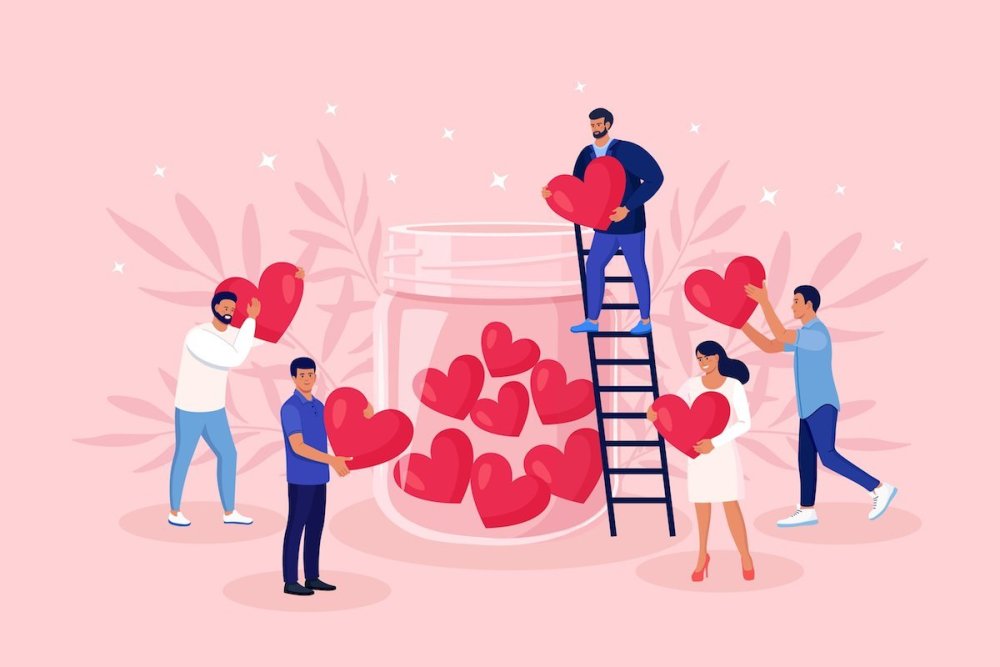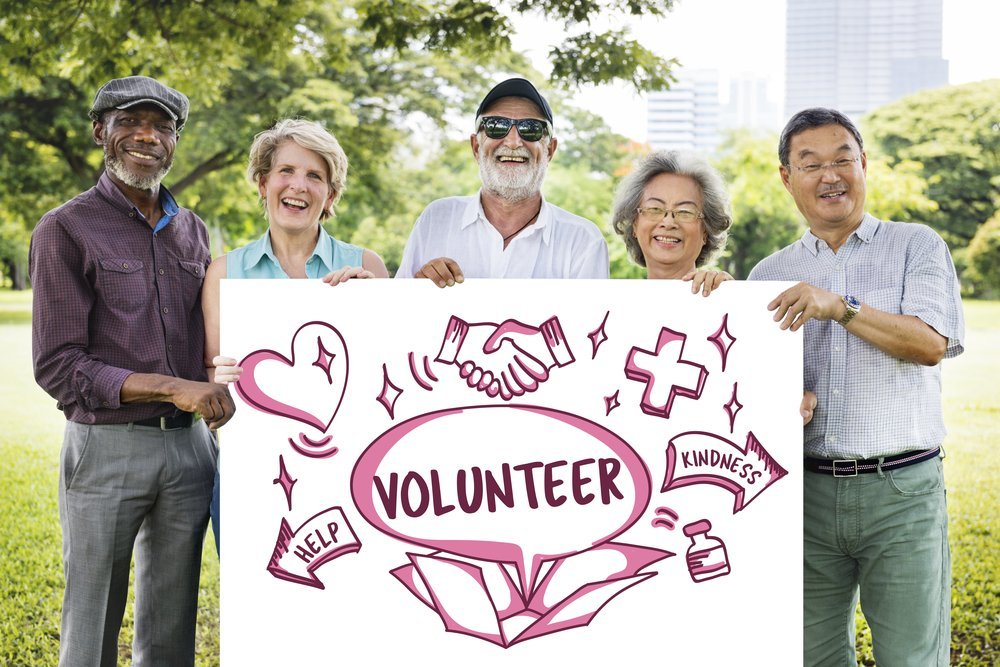Although the world is full of division due to religious and cultural beliefs, in fact, all humans seek similar things – connection and purpose. Dee Marques explores the concept of shared humanity and suggests four ways we can strengthen it.
As a keen traveller, I’ve always been surprised at how different lifestyles can be in different cultures, yet how similar we are as humans – irrespective of where we live. In fact, everywhere I’ve been, I’ve always left with a strong intuition: that all humans share something at a deep level, something that transcends our upbringing, culture and personality.
We could describe that “something” as shared humanity. This is an interesting concept that has become especially important in the current context, given the widespread division we now see around the world.
RELATED: Which values make you happy? It might depend on where you live
Let's take a look at the meaning of shared humanity, explore what science has to say about it, and consider some ways to strengthen this sense of shared humanity.
Shared humanity: visions and perspectives
As it turns out, in a physical sense, there is some scientific basis for shared humanity. That's because researchers at the Genome Project discovered that humans are 99.9% identical in terms of their genetic makeup.
The implications of having shared genes are mostly discussed in the health context, but maybe we should go further. For example, back in the 1970s psychologist Paul Eckman proposed that human emotions are universally expressed in the same ways. Other studies suggest that emotional expression is hardwired into our genes.
A collective desire for connection is key to shared humanity
Perhaps this shared genetic pool explains why we can all relate to common human experiences and emotions. No matter who we are or where we are from, we all feel, think and can empathise with others. This could be a basic working definition of shared humanity.
Beyond this, shared humanity has a deeper connotation. Despite our differences – and especially those related to religious or spiritual beliefs – we all share the following things:
- An innate desire for transcendence and purpose, which suggests that we’re all here to accomplish something valuable.
- The need for dignity. Recognizing that everyone has this need can override all other differences.
- An innate sense of sacredness, which suggest all humans have a soul or intangible essence that makes us invaluable, individually and globally.
Shared humanity and connection
One of the key aspects of shared humanity is that we need to connect with others. And by connecting I mean more than just talking to others or having a certain number of social connections.
The connection behind shared humanity is experienced at a deeper level. It means acknowledging that every human needs to be seen, heard, recognised for who they are, taken into account, valued, and given the chance to live a life of hope, freedom and fairness.
- Eight keys to bridging our differences
- 9 ideas for spreading love and happiness
- What makes people happy across the world
In other words, shared humanity involves a higher level of connection, not just with individual human beings, but with humans as a species or collective.
Research shows that this level of connection is partly what makes us human. In his book Social: Why Our Brains Are Wired To Connect, psychologist Matthew Lieberman shows there’s neurological evidence that accounts for our shared need to connect.
“No matter who we are or where we are from, we all feel, think and can empathise with others. This could be a basic working definition of shared humanity.”
According to Lieberman, our brain has three different neural networks devoted to different aspects of social connection. For example, studies mentioned in his book suggest that whether consciously or not, our instinctive reaction when learning new information is considering how we can share it and with whom.
At another level, this is evidenced in the success of social networks and some of their most popular features, like sharing buttons, mentions and groups. You can find some interesting statistics about this here.
All this seems to confirm that connection is a fundamental aspect of the human experience. In fact, the desire to connect with others isn’t just something we do to feel better, it’s also something we do to reinforce our sense of shared humanity, in ourselves and in others.
4 ways to strengthen shared humanity
Since it seems clear that we all feel a deep urge to connect with others, it makes sense to do our best to strengthen our level of connection. This is especially important in the current global environment, which in many ways is marked by division and antagonism.
In these times, it’s important to focus on commonalities rather than differences. This doesn’t mean that we should try to erase differences, but rather that we should embrace them in the understanding that what we share as humans is much bigger than them.
Here are some practical suggestions on how to strengthen shared humanity in your life.
1. Listen to other people’s stories
It’s common to be drawn to social circles made up of people who are similar to us in terms of preferences and personality. But strengthening our experience of shared humanity means we should aim to expand our interactions to include people who are different from us.
This could mean reaching out to people from other cultures or backgrounds, and in general, from any group you may have pre-judgements about. If the idea makes you feel uncomfortable, you can always start by listening to their stories. Story Corps is a great portal where people from all kinds of backgrounds discuss personal stories that touch the human heart and soul – listen to a couple of them and you’ll realise that you have something in common.
The Belonging Begins With Us project is another great place to find common points of connection, also through powerful stories.
2. Participate in experiences that blur the differences
Another suggestion is signing up for experiences where people from different backgrounds come together with a clear shared goal, such as through volunteering.
RELATED: Why is volunteering important? Here are 7 benefits it offers
These activities help create a sense of shared identity that can make all other differences irrelevant. Social identity is a powerful force when it comes to bringing people together, as shown by studies that confirm that people were more likely to help others wearing a t-shirt from their sports team than those wearing a rival team t-shirt.

Volunteering brings all sorts of people together shutterstock/rawpixel.com
Volunteering experiences highlight your shared social identity with others. In addition to this, it can be useful to think about what other aspects of your identity you share with others and how those reinforce your sense of shared humanity.
3. Pursuing transcendence together
Earlier on I mentioned that the innate desire for transcendence is part of shared humanity. We all seek to transcend in ways that are meaningful to us as individuals, but we can also seek transcendence at a larger scale.
Getting involved in country-wide or global shared initiatives can strengthen our sense of shared humanity due to the influence of superordinate goals. In psychology, these are goals that are put above and beyond other considerations. These goals have proven to reduce intergroup conflict, and can draw opposing groups to collaborate in their pursuit.
“Strengthening our experience of shared humanity means we should aim to expand our interactions to include people who are different from us.”
In everyday life, we see the positive impact of these goals and initiatives through interfaith groups, which aim to get people from different belief groups involved in higher goals that touch the heart of every human. In the United States, some organisations with established interfaith programmes include One America and Interfaith America. In the UK, there are several interfaith networks that promote collaboration over division.
You may also want to get involved with humanist groups and associations, which approach questions of shared humanity from a secular perspective.
4. Focus on the power of kindness and human decency
It’s true that examples of dehumanising attitudes are plentiful, but they shouldn’t override the power of kindness, decency and shared humanity. In other words, if you make a point of you look for examples of shared humanity in everyday life, you will most likely find them – you just need to look more closely.
This has several benefits, which are connected to the concept of 'moral elevation'. This is a positive emotion that we experience when we witness acts of kindness, cooperation or compassion. Studies have shown that seeing evidence of kindness makes us feel more optimistic, connected to others, more altruistic, and more aware of how deep and powerful our commonalities with others are.
Takeaway: shared humanity
As human beings, we’re all connected to each other biologically and at a deeper level. In times of stark division, it’s important to connect with our sense of shared humanity, which can help us restore our faith in the power we have when we put differences aside. So, what is your definition of shared humanity? Feel free to leave your comments below. •
Main image: shutterstock/buravleva stock
happiness.com | The fine art of being: learn, practice, share
Are you a happiness.com member yet? Sign up for free now to:
■ enjoy our happiness magazine
■ share and support in our happiness forum
■ self-develop with free online Academy classes
Written by Dee Marques
 A social sciences graduate with a keen interest in languages, communication, and personal development strategies. Dee loves exercising, being out in nature, and discovering warm and sunny places where she can escape the winter.
A social sciences graduate with a keen interest in languages, communication, and personal development strategies. Dee loves exercising, being out in nature, and discovering warm and sunny places where she can escape the winter.

Join the conversation
You are posting as a guest. If you have an account, sign in now to post with your account.
There are no comments to display.